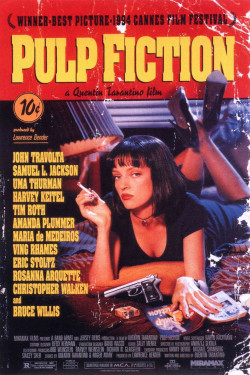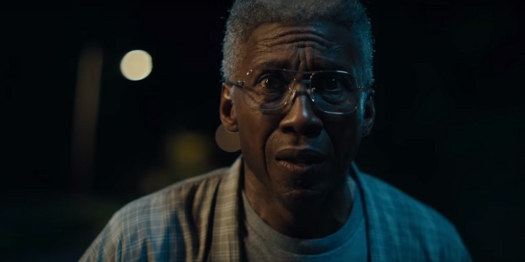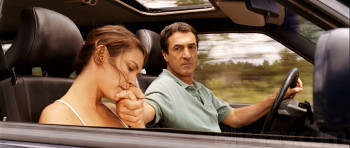 This week saw the debut of “The 50 Greatest Films,” with the One-Line Review’s Iain Stott compiling responses from 187 movie buffs, including me. The list made me wonder: Has the “film canon” become too ossified? I was frankly shocked that the results were so … ordinary. A top 10 of Citizen Kane, Vertigo, 2001, The Godfather, Casablanca, The Third Man, Taxi Driver, Seven Samurai, Psycho, and Dr. Strangelove is perfectly reasonable and respectable, but it’s also merely reasonable and respectable. Given Stott’s admirable democracy (“[I]gnoring thoughts of position or pedigree … ,” he wrote, “professionals and amateurs sit side by side”), I expected a tension between the canonical and the contemporary and the popular. Nope.
This week saw the debut of “The 50 Greatest Films,” with the One-Line Review’s Iain Stott compiling responses from 187 movie buffs, including me. The list made me wonder: Has the “film canon” become too ossified? I was frankly shocked that the results were so … ordinary. A top 10 of Citizen Kane, Vertigo, 2001, The Godfather, Casablanca, The Third Man, Taxi Driver, Seven Samurai, Psycho, and Dr. Strangelove is perfectly reasonable and respectable, but it’s also merely reasonable and respectable. Given Stott’s admirable democracy (“[I]gnoring thoughts of position or pedigree … ,” he wrote, “professionals and amateurs sit side by side”), I expected a tension between the canonical and the contemporary and the popular. Nope.

 The grief in Spike Lee’s When the Levees Broke is heartbreaking. Unfortunately, the anger in it is misinformed, facile, naïve, misplaced, unfair, inconsistent, unsupported, or some combination of the seven.
The grief in Spike Lee’s When the Levees Broke is heartbreaking. Unfortunately, the anger in it is misinformed, facile, naïve, misplaced, unfair, inconsistent, unsupported, or some combination of the seven. Sometimes the success or failure of a movie, book, or television show hinges on a short passage. If that small part works, so does the whole; if the crucial bit comes up short, the entire enterprise falls apart. For me with the third season of creator/writer Nic Pizzolatto’s HBO series True Detective, the moment comes late in the finale when former cop Wayne Hays drives up to the house of a person he strongly suspects is Julie Purcell, who disappeared with her brother Will 35 years ago and has eluded him ever since.
Sometimes the success or failure of a movie, book, or television show hinges on a short passage. If that small part works, so does the whole; if the crucial bit comes up short, the entire enterprise falls apart. For me with the third season of creator/writer Nic Pizzolatto’s HBO series True Detective, the moment comes late in the finale when former cop Wayne Hays drives up to the house of a person he strongly suspects is Julie Purcell, who disappeared with her brother Will 35 years ago and has eluded him ever since. This week saw the debut of
This week saw the debut of  While I still don’t really understand the Twitter phenomenon, I’ve loved using the 140-character limit for extreme forced concision. The aim is always to pack these ridiculously short reviews with enough meaning that I don’t feel guilty about never writing more about a particular movie or television show. I would never say that 140 characters is sufficient to discuss much of anything – let alone a feature film – but it’s a great if arbitrary writing exercise: How much can you say within Twitter’s confines? For the most part, I’ve been happy with the results. But with Tell No One, I feel that I need to explain myself.
While I still don’t really understand the Twitter phenomenon, I’ve loved using the 140-character limit for extreme forced concision. The aim is always to pack these ridiculously short reviews with enough meaning that I don’t feel guilty about never writing more about a particular movie or television show. I would never say that 140 characters is sufficient to discuss much of anything – let alone a feature film – but it’s a great if arbitrary writing exercise: How much can you say within Twitter’s confines? For the most part, I’ve been happy with the results. But with Tell No One, I feel that I need to explain myself.